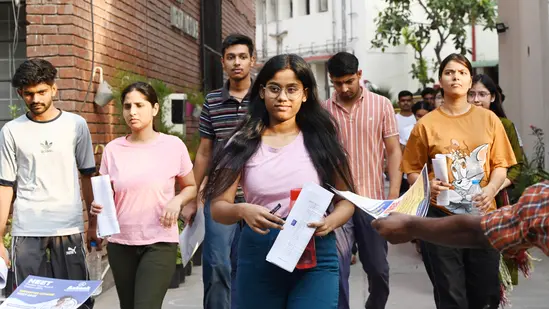
The protection of digital content has become an important concern in every sector, ranging from education to finance. Due to frequent data breaches, impersonation attempts, and technical failures, organisations are under pressure to create robust systems that not only protect sensitive data but also guarantee transparency and reliability. One such challenge, especially in the education and public recruitment sectors, is protecting digital content in real time, along with fighting identity theft and impersonation.
The key to addressing this issue lies in safeguarding digital content as it is created (i.e. data at rest) and how it is distributed (data exchanges), whether it is examination papers, appointment letters, examination results or scores. This is especially critical for large-scale operations, where even the smallest breach can have massive consequences. A prime example is the Staff Selection Commission (SSC), one of the world’s largest public recruitment agencies.
In 2024, SSC partnered with a digital transformation provider to implement a "tamper-proof" digital vault with the objective of creating digital infrastructure based on the Zero Trust Model. An infrastructure which secures questions (also referred to as a question bank vault), and generates a question paper in real time when needed.
IIT Kharagpur mulls steps to lessen mental stress on students
A model that shapes results into a leak-proof digital infrastructure of examination for two reasons, securing the question bank vault at the same time, making it of no interest to the dark world because the volumes are in the range of 50,000 to 100,000, which makes it of no interest. Secondly, a question paper does not even exist till the time required by the candidate. Hence, the doubt of leakage does not even arise for something which does not even exist.
Until 2023, it worked with a monolithic system that was rigid, fragile at scale, and extremely hard to maintain or secure. The technology solutions provider helped re-architect it from the ground up using a microservices-based approach that allowed for the modularisation of critical functions like authentication, candidate data validation, and exam slot allocation.
This shift not only improved resilience and scalability but also enabled real-time monitoring, faster enhancement rollout, and zero system-wide downtime. The goal was clear: build a future-proof platform that ensures identity integrity, operational transparency, and seamless governance at scale.
‘Don’t come to UK’: Indian woman says 90% of her batchmates returned jobless
The new system delivered question papers just 15 minutes before the examination, combining "just-in-time dispatch" with multi-layered encryption. Due to the brief window of exposure, the risk of interference was minimised. Digital Signature Certificates (DSCs) were used to secure the documents, thus ensuring only authorised users could access them. Additionally, an audit trail records each access point and action, ensuring total transparency and monitoring for unauthorised access. Also, an audit on blockchain was made to avoid tampering of the audit trail.
Thus, the blueprint for secure examinations, as in the case of SSC, is rooted in precision engineering, identity verification, and "zero-leakage" systems that restore faith in public processes.
Fighting Identity Theft and Impersonation: As digital services grow, identity theft and impersonation have become significant concerns. From online exams to financial transactions, verifying a user’s identity is crucial for maintaining security.
In response to the rising threat of exam fraud, a public recruitment agency implemented Aadhaar-based facial recognition technology. This system matched the original registration photo with a live selfie taken at the testing centre. If discrepancies were found, impersonation attempts were flagged and stopped immediately. The biometric verification process continued throughout the entire hiring process to ensure the individual who took the exam was the same person being considered for the job.
These identity verification technologies are not just limited to recruitment and education. They are being adopted across industries like banking, insurance, and healthcare to maintain identity integrity and reduce fraud.
Macquarie University announces AUD 40,000 scholarships for Indian Students for 2025-26 intake
The integration of biometric identity verification and AI-powered authentication systems ensures that sensitive data remains protected, fraud is minimised, and processes are simplified for everyone involved. Thus, authentication, access control, and accountability become the three pillars of a secure examination ecosystem, which tech companies are striving to achieve with these solutions.
The integrity of examinations is not just a matter of logistics – it is a matter of national trust. As India digitises at scale, we must build platforms that are not only efficient but also incorruptible. Technology should serve as a silent enabler of fairness, transparency, and inclusion, especially where the future of millions is at stake.
(Author Ravi Kumar is the Co-founder & CEO of Cubastion Consulting Pvt Ltd, a technology-solutions provider. Views are personal.)
